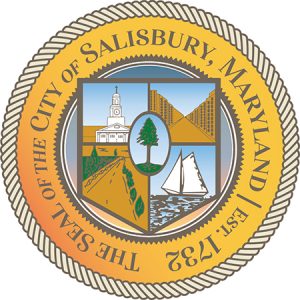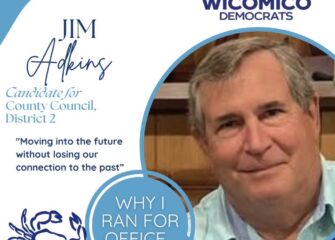
Salisbury- The Mayor’s Environmental Policy Task Force is set to present its final report to City Council at tonight’s Work Session at 4:30 pm. The public is welcome to join the meeting, the link for which can be found on the City’s website homepage at www.salisbury.md or on the City Council’s page on the website.
In February of 2020, Mayor Jacob Day convened the Mayor’s Environmental Policy Task Force to help establish sustainability goals for the City of Salisbury. Led by Chairman Dave Nemazie, the Task Force met virtually over the Summer and Fall of 2020, convening with City leaders and drafting recommendations for the City.
Consisting of 22 members, the Task Force features individuals who represent local industry, environmental groups, educators, engineers, landscape architects, and citizens. The mission of the Environmental Policy Task Force is to help the City of Salisbury establish a framework for establishing long-term sustainability goals in order to become a more resilient City and community.
“Mayor Day and I are so grateful for the enormous amount of work that the Task Force put in over the last year to produce a thorough and professional list of recommendations for our City,” shared City Administrator Julia Glanz. “The City is eager to continue to limit our environmental footprint and we now have the road map to do just that. Thank you to Task Force Chairman Dave Nemazie, the entire Task Force, our Sustainability Coordinator Alyssa Hastings, and Director of Infrastructure and Development Amanda Pollack. You all should be so proud of your work,” she added.
The 2020 Task Force focused their recommendations on 5 main topic areas and formed 5 subcommittees:
- Energy Use and Emissions
- Water, Wastewater, and Storm Water
- Management of Public Open Space,
- Transportation, Sustainable Operation
- Design, and Education and Outreach
Each recommendation formed by the Task Force includes a synopsis, benefits and barriers, actions required by the City, climate change implications, diversity and environmental justice Implications, and the group’s priority and recommended time line.
Recommendations include actions such as: embedding energy and emissions assessments into City planning, increasing storm water inlet trash inserts to prevent waste from entering the Wicomico River, an educational campaign about nuisance flooding, including smart growth policies in the City’s upcoming new zoning code, increasing parks staffing in order to implement bay-friendly policies and practices, and many others.
To review the Task Force’s final report visit: salisbury.md/environmental-policy-task-force



